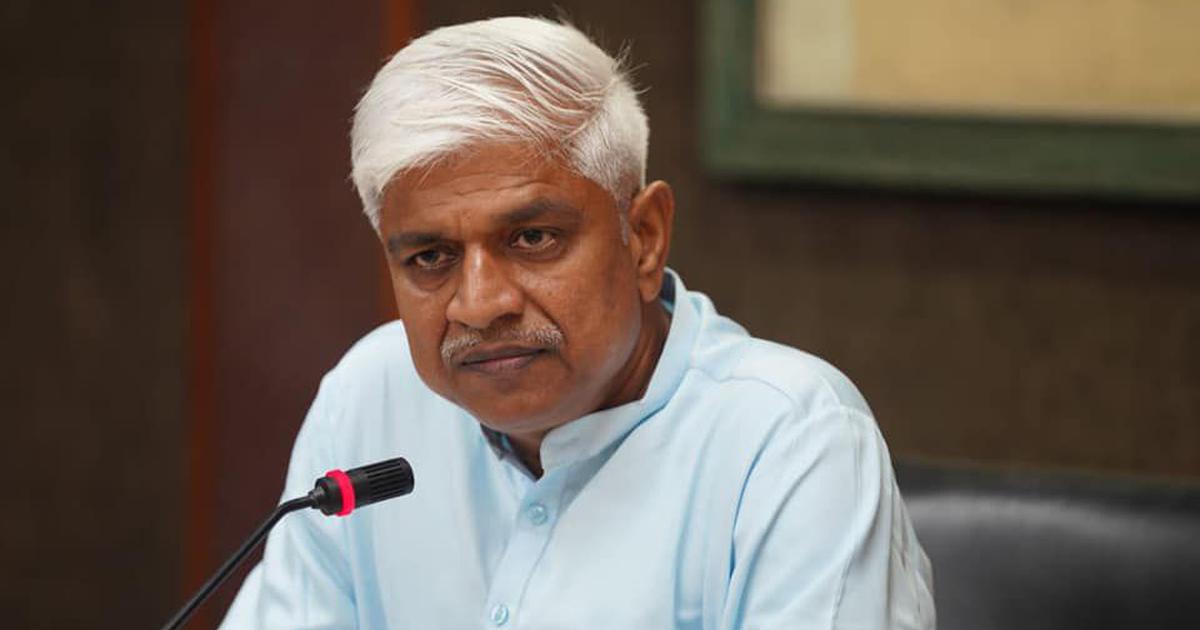Why is conversion to Buddhism so controversial?

In India, the right to profess, practice and propagate one’s own religion remains marred by socio-political lacunas as well as judicial travesty.
Aatika S | TwoCircles.net
NEW DELHI — In October last year, the former social welfare and SC/ST minister in the Aam Aadmi Party (AAP) government, Rajendra Pal Gautam resigned due to a controversy about his alleged conversion to Buddhism on October 5 and “anti-Hindu” vows taken in the ceremony. The said vows are a part of the 22 oaths prescribed by Dr. B.R. Ambedkar in 1956 for conversion to Buddhism.
They were branded "anti-Hindu" because at least 7 of Ambedkar’s 22 vows either deal with direct renunciation of Hinduism or a vow to no longer believe in Hindu gods or practices.
The top three vows which Gautam pledged to uphold are:
1. I shall have no faith in Brahma, Vishnu and Mahesh nor shall I worship them.
2. I shall have no faith in Rama and Krishna who are believed to be incarnations of God nor shall I worship them.
3. I shall have no faith in ‘Gauri’, Ganapati and other gods and goddesses of Hindus nor shall I worship them.
Gautam was simply following Ambedkar.
In 2015, the BJP-ruled Gujarat government withdrew a school textbook commemorating Dr. B.R. Ambedkar’s 125th birth anniversary as it contained the controversial twenty-two vows.
AAP’s silence
AAP shied away from expressing any implicit or explicit support for Gautam. As one of the few political persons to openly embrace the term Ambedkarite, Gautam has only continued to work for the cause of social justice since that day. Gautam led a Jati Unmolam Ekta Sankalp Yatra (Caste Abolition Unity Resolve Yatra) from Raj Niwas to Ambedkar National Memorial.
AAP uses Ambedkar to appeal to his followers' votes. It organised a musical on Ambedkar while propelling its own agenda.
Prateek Vijayavargia, a Ph.D. student at the School of International Studies, JNU, says the controversy over Gautam’s decision to convert to Buddhism and the Aam Aadmi Party’s silence over the issue “exposes the hypocrisy of the party which pays mere lip service to Ambedkar’s legacy, and refuses to stand by and back its own member and MLA.”
“AAP is willing to sway to any side for narrow electoral interests. It’s appropriation of leaders such as Ambedkar is nothing but a populist move that aims to pander to the masses but without any nuanced understanding of the emancipatory ideals and principles of his politics and conversion to Buddhism,” adds Prateek.
Ambedkar inspired conversion
Prof. Y.S. Alone, who teaches Buddhist visual culture and philosophy at the School of Arts and Aesthetics, JNU says Dr. B. R. Ambedkar’s conversion on 14 October, 1956 was the biggest conversion ever witnessed in the history of the world.
Accordingly, there have been many conversions in Maharashtra as well as elsewhere and the 22 vows were always recited. Large number of conversions were made in the post-Ambedkar era, such as conversions led by Eknath Awad, Lakshman Mane and many others.
“For any political party in India, it is a daunting task to respond to what Dr. Ambedkar wrote in Annihilation of Caste, and above all Article 51 of the Indian Constitution. His vows are aimed at making society free from the clutches of blind beliefs, divinity, and to inculcate a belief in the self to carve out one’s life in the righteous manner,” argues Prof. Alone.
Has BJP criminalized freedom to choose one’s religion
The right to profess, practice and propagate one’s own religion remains marred by many socio-political lacunas as well as judicial travesty. For instance, an FIR was filed against the 236 Valmiki community members for conversion to Buddhism right after the brutal gang rape of a 19-year-old Dalit woman by five Thakur men in Hathras last year.
Sandhya Gawali, president of the Birsa Ambedkar Phule Students’ Association, JNU sees conversion as an act of “assertion in terms of self respect and dignity.”
“Conversion provide a shared identity to the converted community that shares common interests, fraternity ethos and social-cultural mobility. People have claimed equality, self respect and dignity through conversion and asserted it publically. The act has given women more equal space in private and public life,” she added.
Anxiety against conversion dates back to Gandhi-Ambedkar differences
The series of events makes one ask why does conversion make the Brahmanical Hindutva groups so nervous and anxious? Their nervousness is apparent given such acts of freedom to choose and practice one’s own faith, essentially one of the freedoms that the Indian constitution guarantees, are being attacked and criminalized.
The anxiety regarding conversions dates back to the late colonial era though and the large-scale conversion of oppressed castes and adivasis to more egalitarian religions. Gandhi remained severely critical of these mass movements and steadily opposed Ambedkar who wanted a balance to be achieved between religious freedom and religious equality.
Anti-conversion legislation is on the rise in many states establishing coercion as the basis of the ongoing acts of conversion. The Supreme Court recently observed that forced religious conversion is a serious issue that can affect national safety, freedom of religion and freedom of conscience. The apex court wants the issues to be curbed immediately. Most of the states run by the BJP legally prohibit conversion by an individual without permission of the local authorities.
Aatika S is a fellow at the SEEDS-TCN mentorship program.
